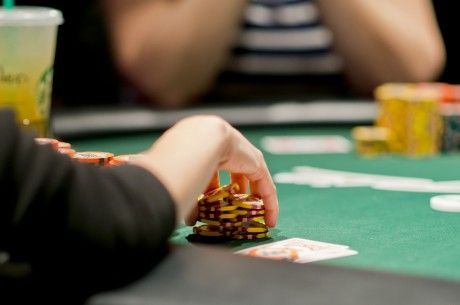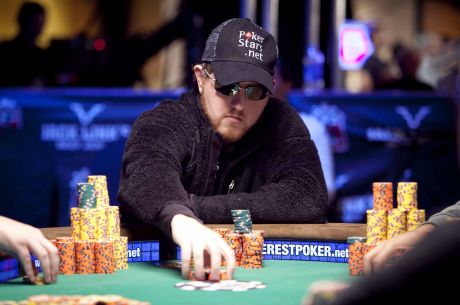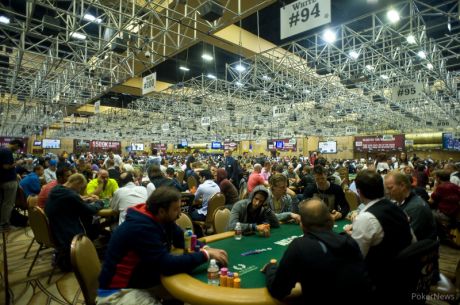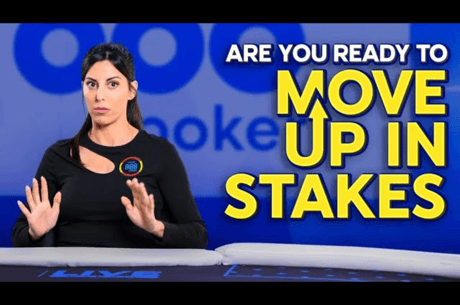Tilt Report; I Mean, Trip Report
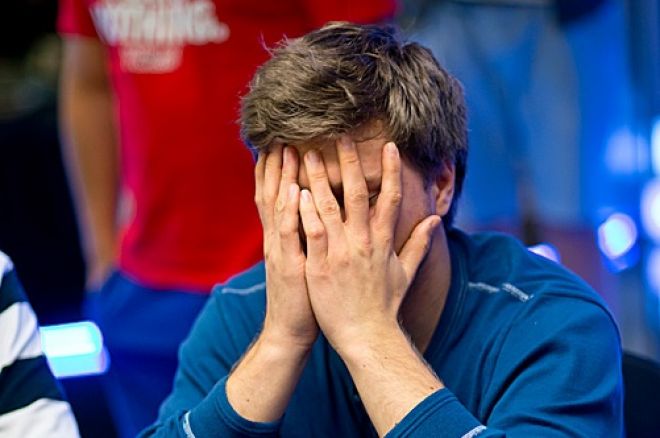
I am such a loser.
Have you ever said that, or something close to that, after a particularly bad session or a prolonged period of run-bad?
Confession: I spent a long weekend in Vegas, sort of a post-wedding celebration with a friend who��d recently married. I live in California, within a mile of a 25-table card room and within an hour of perhaps eight other card rooms, so while going to Vegas is special, it��s not as if the trip represents my one chance all year to play some live poker.
Still, Vegas is magnificently fun, and a trip there always comes with a terrific sense of anticipation. The card rooms in the nice casinos are spectacular and well run. The games seem to be extremely juicy at the low stakes I play. And it��s Vegas. The whole enterprise of poker in Sin City feels legendary, even epic, even for an experienced recreational player like me.
The weekend was terrific. My friend and I ate and drank spectacularly well. We hung out with a mutual friend who lives in Vegas. We stayed at a first-rate hotel where the rooms were excellent and the service was impeccable. The experience was nothing short of amazing in every conceivable way �� well, every conceivable way but one.
Poker.
In terms of poker results, my three-day getaway was a disaster. I played six sessions �� four cash games and two tournaments �� and lost in the first five. That includes one $4/$8 limit game where the players were loose, passive, and almost surreally bad. My friend was at the same table for a while, and afterward he said, referring to the player in seat eight, ��I wonder why he even bothers to look at his cards. I mean, what could he possibly see that would prevent him from calling?��
Of course, I know that my sample size is trivial and that losses in poker are a dime a dozen. I��m not saying ��Woe is me�� or ��OMG, I run so bad.��
But after, say, the third losing session, I did think to myself: I am such a loser.
I was letting poker results affect my sense of self. I was allowing monetary loss �� mere variance! �� to bruise my ego and impair my sense of my self-esteem as a human being, not just as a poker player. My brain surmised that the fastest and most effective way to ease the pain of losing is to be a winner. I was desperate to win solely to ease the pain of losing.
I realized I was experiencing ��loser tilt.��
I may have experienced ��loser tilt�� before but I had not noticed it until this past weekend. I��m not talking about the understandable desire to get even, which typically leads to playing too fast and too loose. I wasn��t trying to exact revenge on the players who sucked out on me or made horrible calls. And I certainly didn��t take my frustration out on my opponents or dealers.
It was a subtler form of tilt, but no less dangerous and perhaps more insidious than the traditional kinds of tilt. Simply put, I didn��t want to feel like a loser for another second. And I kept playing in a misguided effort to change it.
The poker gods were smiling on others, and I wanted them to smile on me. They, however, were unimpressed. So I pressed on, compounding the damage to my psyche and my bankroll.
So what��s the lesson for other players? Actually, I see a few:
First and foremost, recognize that losing at poker doesn��t make me or anyone else a ��loser.�� A loss shouldn��t define you as a player or as a person �� ever. Conversely, winning at poker doesn��t make you a winner; winning doesn��t even mean necessarily that you��re a good poker player.
Second, identify all the kinds of tilt you are capable of experiencing. The most familiar kinds are tilting when you��re card dead, or after suffering a beat. Or if you tilt because bad players are hitting everything and raking pots (typically, looking smug in the process). And of course there��s ��loser tilt�� akin to what I experienced, when you��re so desperate to feel something positive that you play far too long.
And third �� the most obvious lesson and the most difficult to execute �� get yourself away from the table the second you notice a sign of tilt, or earlier! Most players take far too long to recognize they are tilting. If you wait until the hormone cortisol is trickling into your bloodstream or until you notice that you just called from middle position with Q?4? ��because it was suited,�� you are too late. (But not irrevocably too late: Quit the minute you think you��re tilting.)
I��m not saying quit for the day necessarily. ��Quitting�� might mean moving down in stakes. It might mean having a meal (away from the table). It might just mean taking a fifteen-minute walk in fresh air and clearing your mental space. Or perhaps all you need to do is stand up and take a few deep, mindful breaths. I��m sure if I��d followed this advice last weekend I��d have saved myself a couple of buy-ins.
That said, I still felt an undeniable thrill when I sat down at a Las Vegas poker table, taking chips out of the rack, and settling into the rhythm of a game. And the chance to be in Vegas with my pal was absolutely priceless. I��ll soon forget the monetary pain, but I��ll never forget that experience.
As I��ve said before, some of your most important poker lessons will come from your most painful poker experiences. The more experienced I get, the more I��m convinced that tilting is the most damaging leak you can have. I don��t for a minute think I��ve plugged that leak fully, but I��m already pining for another trip to Vegas to see how I fare.
Down, but most certainly not out. And decidedly, not a loser.
Want to stay atop all the latest in the poker world? If so, make sure to get PokerNews updates on your social media outlets. Follow us on Twitter and find us on both Facebook and Google+!

